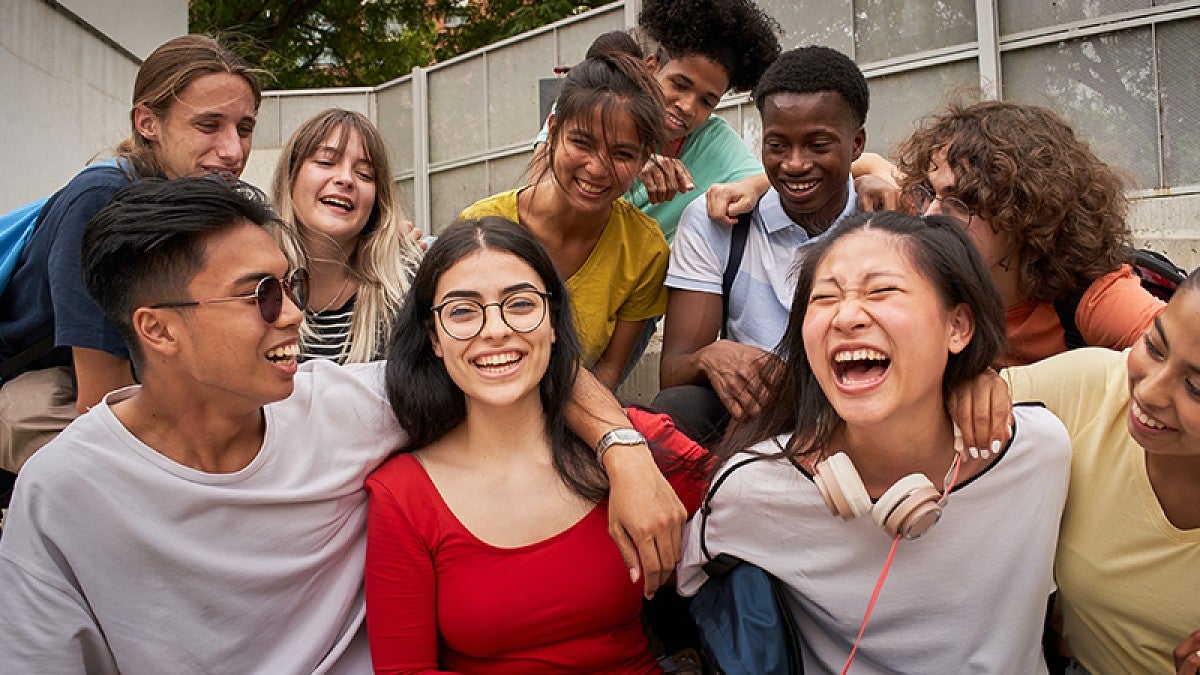Schools can be prime locations for students to find mental health help, but many don’t have the resources to help students with disabilities, who are more likely to experience mental illness.
Researchers at the UO College of Education are working with Springfield Public Schools to change that pattern through a new four-year project called Project SIMPLE. The goal is to create a multitiered system of mental health support that responds to the needs of students with disabilities and can be integrated into schools’ special education departments.
SIMPLE stands for School-wide Inclusive Mental Health Promotion for Learning and Coordinated Community Engagement.
“This is a complicated study,” said James Sinclair, the principal investigator for Project SIMPLE and a research associate for the Center on Human Development in the UO’s College of Education. “But hopefully we’re making things simple for our schools.”
In October, the Office of Special Education Programs in the U.S. Department of Education awarded Sinclair and his team a model demonstration grant. This kind of grant, instead of producing a specific outcome, will allow Sinclair’s team to show how a more efficient and inclusive mental health system can be implemented into schools.
“The purpose of this is to have this big toolkit to say, ‘Hey, schools, if you're interested in implementing tiered mental health support within special education, this is one way to go about it,” Sinclair said.
A system of tiered mental health support can include additional assessments for students with elevated risk, opportunities for family involvement within schools, and increased community engagement. While some of those practices already happen in schools, the project will make the process more accessible for educators.
The project also emphasizes that the mental health support system will be created based on the needs and experiences of students.
“This is really, really important. We’re trying to build this model on a foundation of representation within the community,” Sinclair said. “Who are the students in the school? And how do we make sure that what we’re doing is reflective of them?”
Most mental health assessments weren’t designed in a way that is reflective of students with disabilities.
For example, assessments asking individuals to describe their recent emotions won’t help those with intellectual disabilities who may have difficulties identifying and describing complex emotions. Sinclair said that incorporating visual supports, like images of faces expressing emotion, can make the questions easier to answer.
Team members say the timing of the project is crucial because student mental health has been in steady decline in recent years and providers are struggling to respond.
“Our current system is overburdened with wait times and staff shortages, and the time in between referral and direct service is crucial,” said Geovanna Rodriguez, an assistant professor of school psychology at the College of Education and one of two co-principal investigators on the project. “If schools can streamline their referral process, accurately and reliably identify students at risk, and increase mental health service within their school with our support, I would consider that a success.”
The team will begin observation at Springfield High School in the fall and continue its research through the year. Team members will survey teachers, students, families and community members on what is needed and then will start introducing revised assessments for students. The system also will include professional development training for teachers.
“I would like to see teachers feeling more comfortable addressing and understanding the mental health needs of their students with disabilities,” Sinclair said. “And feeling comfortable implementing practices that are effective for them.”
After the first year working at Springfield High, the project will expand to the other high schools in Springfield Public Schools in the following three years.
Katherine Bromley is a research associate at the Center on Human Development and the second co-principal investigator alongside Rodriguez. Bromley said she hopes the project draws attention to the reasons why the study was needed in the first place.
“I hope it shows that we as a team, and as a college, are committed to ensuring students with disabilities are included within all systems, services and supports within schools,” she said.
Sinclair said the project wouldn’t be possible without his team — which includes Rodriguez, Bromley, Chris Knowles, Christopher Murray, John Seeley and Suzie Stadelman — or the partnership with Springfield Public Schools.
“This project just continues to show the innovation the College of Education keeps producing,” Sinclair said. “This grant wouldn’t be funded if the funders didn’t believe in the work that the College of Education does. We have a strong foundation of excellent work, and this is a continuation of that excellence in terms of research.”
For more information about the project, contact Sinclair at jamesin@uoregon.edu.
—By Madeline Ryan, College of Education


